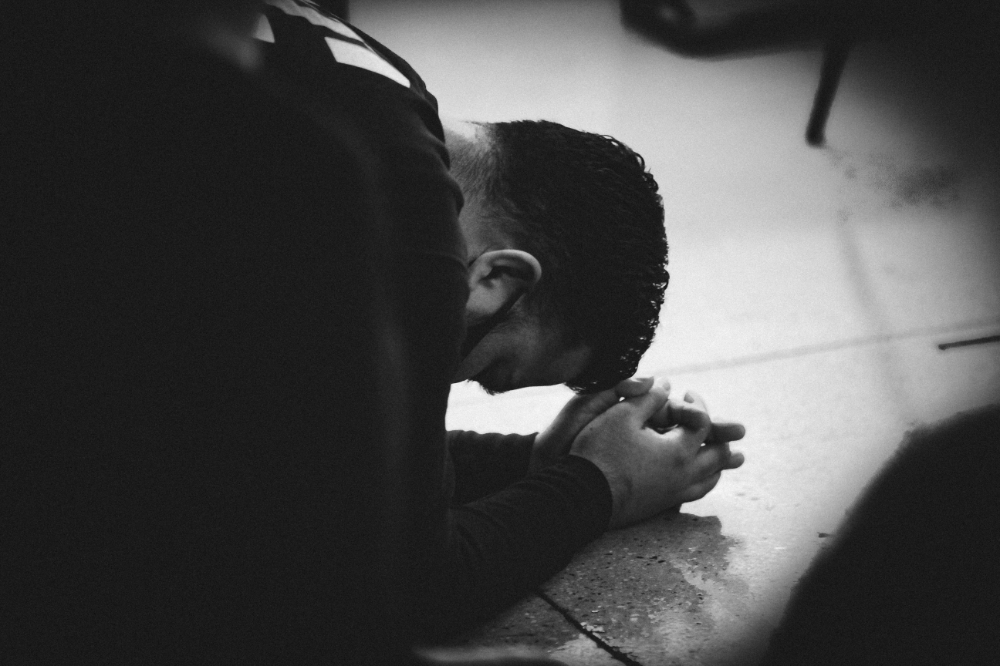I was eleven when my parents took me out of my public school, friend groups, and extracurricular activities in America to uproot me to this province that was nothing like my birthplace. Aceh enforces Sharia law and withstood one of the longest-running civil wars in history. Out of respect for local culture, I covered my head in public, abiding by Islamic standards of modesty for women. We worshiped privately in our house behind closed doors with curtains drawn. I was homeschooled and learned to speak another language in order to make local friends.
Prior to our move, friends and family members warned my parents that I would hate them for putting me through such a momentous change. They predicted that, eventually, I would resent them for ruining my life by taking me away from my American childhood. But I didn’t, and I don’t.
The world leads us to believe that the greatest thing a parent can give their child is a safe and comfortable life with the best of everything. My adolescence taught me that this is not true.
What proved to be more formative for me than any cross-cultural experience or American education was being involved in the call of Christ—to deny ourselves, take up our cross, and follow Him. My parents’ decisions had repercussions for me as well, which forced me to leave familiar things behind, things that I loved, and believe that God was trustworthy. Our life overseas wasn’t necessarily safe or comfortable, but it taught me that the chief end of the Christian’s life is neither safety nor comfort—it is a life of obedient submission.
Deny self and follow
The title of a small book by Søren Kierkegaard makes a profound statement: Purity of Heart is to Will One Thing. In the span of history, there is no truer example of this than Jesus Christ, the purest man to ever walk the earth. Jesus was pure, not just because He was God, but because He only desired the will of His Heavenly Father; submission was the defining theme of His earthly life. Crying out in Gethsemane that the cup of God’s wrath meant for sinners might be passed from Him, Jesus still prayed the words of surrender, even as He was sent to suffer death on a cross: “Yet not what I will, but what you will” (Mark 14:36).
Jesus was pure and lowly because of His posture toward the Father: total surrender and submission. His call for us to deny ourselves, pick up our cross, and follow Him means that we are to do the same. It is a consequential call. It is a dangerous and uncomfortable call. But it is the call of the true Jesus, a mark of His followers. Not my will, Lord, but yours, is a prayer that surrenders the entirety of one’s life, no matter the implications, without exception.
Then Jesus told his disciples, “If anyone would come after me, let him deny himself and take up his cross and follow me. For whoever would save his life will lose it, but whoever loses his life for my sake will find it.”
Matthew 16:24-25
Our culture cannot imagine that joy could come from self-denial because we are saturated with messages of self-gratification. Many people confuse joy with happiness, and their understanding of happiness is contingent on the fulfillment of every desire. Make the life you want. Pursue your dreams. Do what you love. Yet this messaging is wholly unlike the sacrificial, come-and-die call of Christ.

Prior to moving, our family was an illustration of the successful American dream. My father was an IT director at a company previously named the best place to work in America, and my parents were financially secure. We lived in a big home and went on beautiful vacations every year. I loved my weekly ballet lessons, and my older brother and I enjoyed attending Sunday school and church camps. We were happy and contented kids living a comfortable life.
These were all good things, but having to leave them behind showed me that Jesus is worth far more than our best things. Following my parents to board a plane to move to the opposite side of the world made it clear that our life wasn’t all about me, and that my own desires were not our family’s center of gravity. This act of unsolicited submission proved to be crucial to my future discipleship; it gave me an experiential understanding of myself in relation to God—He is Lord, we are to obey. He is the Good Shepherd, we are to follow.
Cross one out
Not everyone is called to move to another country. Geography is not important. However, we are all called to a life of self-denial. Following Christ entails a lifetime of dying to self, of daily choosing to go where He calls and do what He says, of relinquishing claim to our own lives.
Or as Dietrich Bonhoeffer said in The Cost of Discipleship, “When God calls a man, he bids him come and die.”
The former missionary and writer Elisabeth Elliot articulated the consequential implications of the call of Jesus with an exercise she learned from a Scottish preacher.¹ I think of it often. When your own desires seem to come into conflict with the will of God, write down two words on a piece of paper: No Lord. Looking at the paper, we are to cross one of them out. It seems like a simple task, but it is not so easy. Which to cross out? The challenge is this:
To cross out “no” means we cannot call Him “Lord.” But if we call Him “Lord,” we cannot say “no” to Him.
Obedience is best
I loved my years in Indonesia, and now as an adult, I realize I didn’t miss out on anything. In God’s economy, there is no cost-benefit analysis needed in following Jesus. We have the assurance that His will is always for our good and for His greater glory, and any seeming cost is ultimately made to our benefit. It is how He works. Through grace, God blesses obedience by growing us in holiness. As we are sanctified, we know Him more deeply. And knowing Him deeply affords us every good thing we could ever need in this life. In his book Praying with Paul: A Call to Spiritual Formation, theologian D.A. Carson writes:
We quickly learn that God is more interested in our holiness than in our comfort … He shows himself more clearly to men and women who enjoy him and obey him than to men and women whose horizons revolve around good jobs, nice houses, and reasonable health … He prefers that his people live in disciplined gratitude and holy joy than in pushy self-reliance and glitzy happiness. He wants us to pursue daily death, not self-fulfillment, for the latter leads to death, while the former leads to life.²
There is joy in submission
Ultimately, kids don’t need more opportunities or better extracurricular activities. They need courageous parents and adults in their lives who value the pursuit of holiness over comfort, and who prize obedience over self-indulgence. Doing so, they model the sufficiency of Christ and the worthiness of His call. While the material gifts and creature comfort my parents provided me with were good things, no amount of them made me know more of Jesus. It was only through having to let them go, with open hands, that I truly learned more of who He is, the one who is able to do “immeasurably more than all we ask or imagine” (Ephesians 3:20).
Ultimately, kids don’t need more opportunities or better extracurricular activities. They need courageous parents and adults in their lives who value the pursuit of holiness over comfort, and who prize obedience over self-indulgence.
The best thing my parents did for my discipleship was to do what I could not have done for myself—to lead me in following Jesus when it required sacrifice because it taught me that the Christian life is costly. And yet, I learned through experience that God is trustworthy with our lives. There is joy in obedience. His way is better than our own. These were the most formative lessons of my adolescence, the most crucial to my faith now as an adult.
Knowing the promises of God to be true is experiential understanding. We have to surrender something to God if we are ever to learn that He is trustworthy. We have to take steps to follow Jesus in obedience to see that His will is better. To obey God often looks like foolishness to the world, as we walk by faith and not by sight (2 Corinthians 5:7). We are not called to understand, but to follow our Good Shepherd, trusting that He who leads us is sufficient to fill every want or need imaginable.
He who did not spare his own Son but gave him up for us all, how will he not also with him graciously give us all things?
Romans 8:32
The former missionary to China, Betty Scott Stam, wrote a prayer in her Bible as a young woman. It encapsulates unconditional surrender and absolute acceptance of God’s will, not knowing the cost. Years after she penned the prayer, Betty and her husband John would be executed by Chinese Communist soldiers in 1934. When she wrote it, she could not have known the price she would pay for her obedience, only the worthiness of the One who called her.
Lord, I give up all my own plans and purposes, all my own desires and hopes, and accept Thy will for my life. I give myself, my life, my all utterly to Thee to be Thine forever. Fill me and seal me with Thy Holy Spirit. Use me as Thou wilt, send me where Thou wilt, work out Thy whole will in my life at any cost, now and forever.
Betty Scott Stam
(1906-1934)
We follow a holy, yet surrendered Savior. In Jesus Christ, we have the assurance that there is joy to be found in obedience to our Heavenly Father. By grace, we learn to cherish holiness—to pursue it at any cost with our lives, and follow the One who promises to one day bring us into the fullness of it, in glory, with Him, forever.
Endnotes
1. Elisabeth Elliot, Keep a Quiet Heart (Vine Books, 1995), p. 157.
2. D.A. Carson, Praying with Paul: A Call to Spiritual Reformation (Baker Academic, 2014), p. 177.




